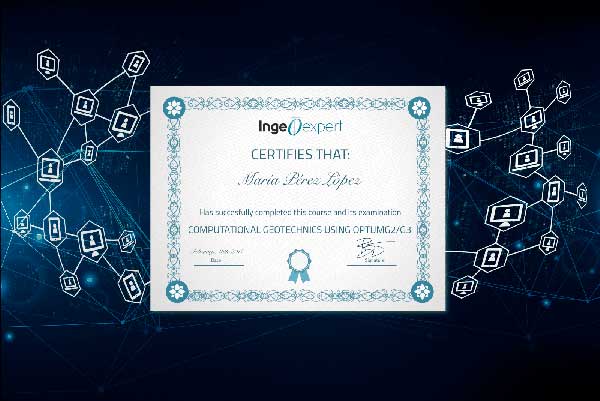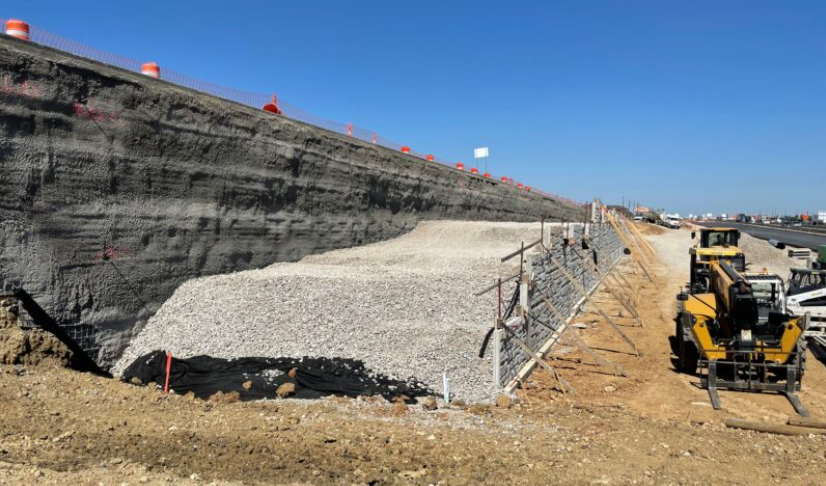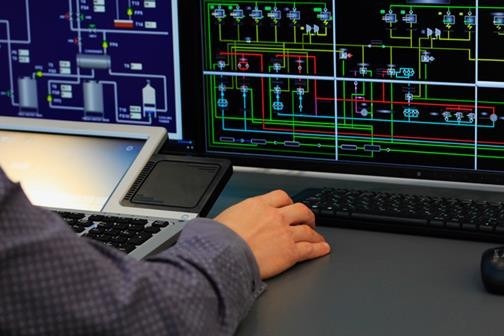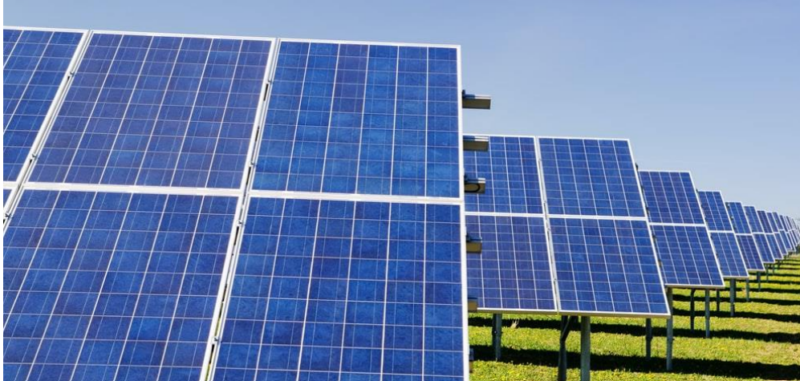Solar Photovoltaic technologies
Online course |
|
50 hours / 6 weeks |
|
|
Dates: 3rd of June to 15th of July |
| Standard | Unemployed Or Student |
| $313 | $227 |
In collaboration with Trans Pacific Energy, Inc.
Introduction
Photovoltaic (PV) systems are one of the most common forms of solar energy and widely implemented solar energy technologies. (PV) systems directly convert sunlight into electricity through the photovoltaic effects, of solar cells, solar panels made of semiconductor materials, typically silicon. Advanced (PV) systems use thermal effects and are well known as PV-Thermal, where power and thermal energy are produced at higher thermal and electrical efficiencies than standard (PV) systems.
Objectives
The main objectives ot this course are focused on PV solar and PV-Thermal solar technologies and include topics such as converting sunlight into electricity, main components of the PV solar systems, promoting sustainability, and reducing reliance on conventional power sources. Another objective of this course is to highlight, explain, and demonstrate the fundamental goals of solar panels and how to maximize their efficiency and impact.
Limited places.
Module.1: Photovoltaics in the world of renewable energy (1 week)
– Advantages of photovoltaics.
– Why are photovoltaics gaining worldwide popularity?
– Why the cost of photovoltaics is decreasing.
– The main applications of solar power.
Module.2: Basics of photovoltaics and solar power system components (2 weeks)
– Solar power basics.
– Electricity basics.
– Solar (photovoltaic) panels.
– Solar panel types.
– Solar panel voltages.
– How to orientate in solar panel ratings?
– Connecting solar panels.
– Electricity and solar power basics summarized.
Module.3: Batteries (1 week)
– Why does a solar power system need a battery?
– What are solar batteries and how do they work?
– What kinds of batteries are used in solar power systems?
– How many amp-hours of capacity do you need?
Module.4: Charge controllers (0.5 week)
– Do you always need a charge controller?
– Sizing and installing your charge controller.
Module.5: Inverters (0.5 week)
– Grid-tied solar inverters.
– Off-grid inverters.
– Selecting the inverter for your solar power system.
– Other solar system components.
Module.6: Solar electric systems (1 week)
– Grid-tied solar power systems.
– Grid-tied systems summarized.
– Off-grid solar power systems.
– Main applications of off-grid stand-alone PV systems.
Module.7: Hybrid systems (1 week)
– Additional power backup sources in hybrid systems.
– Benefits of hybrid power systems.
– When do you need a hybrid power system?
– Mobile solar power systems.
– Differences between residential and mobile solar systems.
Module 8: Assessment of your location for the solar resource? (1 week)
– Why the condition of your roof does matter.
– Roof-mounted or portable solar panels for your RV?
– Should you tilt the solar panels on your RV?
– How to perform a solar site survey?
– Tips on how to avoid shading.
– Determine your roof area.
– Determine the orientation and tilt angle.
– Selection of a tilt angle other than the latitude?
– Solar-generated power in summer or winter?
Module.9: PV Cells Used in Hybrid PVT Systems (1 Week)
– Types of PV Cells Used in Hybrid PVT Systems.
– Air-Based Hybrid PVT Systems.
– BIPVT (Building Integrated PVT).
– Water-based PVT systems.
– Combined Water/Air (Bi-Fluid) Based PVT Systems.
– Refrigerant-Based PVT Systems.
– Nanofluids-Based PVT Systems.
– PCM (Phase Change Materials)-Based PVT System.
– CPV Technology
Module.10: Course Summary and General Discussions (1 week)
– Resources.
– Simple Solar Calculators.
– PWM Charge Controller Calculator.
Samuel Sami Howard
Dr. Samuel is the Founder of TransPacific Energy Inc. He was for 25 years a Professor and Director of the Research Centre for Energy Conversion CRCE, the University of Moncton, a Research Associate at UNLV, and a lecturer at San Diego State University. and Professor and Director of (Renewable Energy Center (CER) at UCAUAE. He also regularly lectures in his area of expertise. He received his Ph. D from the University of Montreal, Canada, and JD from Novus Law School, US. He authored and co-authored over 240 published papers in highly indexed Scientific Journals on Energy Conversion and Management, Waste Heat to Power, Renewable Energy, Thermal storage, Refrigerant Mixtures, and their use in Waste Heat Recovery and Power Production as well as HVAC. Dr. Samuel works in hybrid renewable energy using magnetized nanofluids in PV solar, PV-thermal solar, CSP, Geothermal energy, Fuel Cell, Hydrogen production, Thermal Energy Storage, Biomass-driven ORCs, Wind Turbines, Solar-driven Desalination, and Solar-driven OTEC. Dr. Samuel specialized in remote power generation with Renewable Energy.
Dr. Samuel holds 14 patents in refrigerants and refrigerant mixtures, thermodynamics, energy management, storage and conversion, heat recovery, and green energy as well as renewable energy. He also offered online and in-class courses in renewable energy at SDSU, University of San Diego, AAU., and NDU. Dr. Samuel is a fellow of ASME and ASHRAE. He is also the Editor-in-chief of IESJ and associate editor and guest-editor of several highly indexed journals.
Also earned a Dispute Resolution Certificate from Pepperdine University, School of Law, CA, USA, and acts as a mediator and expert witness in energy management and renewable energy and industrial disputes and member of different Associations of Expert Witness.
The course is delivered online through our easy-to-use Virtual Campus platform. For this course, a variety of content is provided including:
– eLearning materials
– Videos
– Interactive multimedia content
– Live webinar classes
– Texts and technical articles
– Case studies
– Assignments and evaluation exercises
Students can download the materials and work through the course at their own pace.
We regularly update this course to ensure the latest news and state-of-the-art developments are covered, and your knowledge of the subject is current.
Live webinars form part of our course delivery. These allow students and tutors to go through the course materials, exchange ideas and knowledge, and solve problems together in a virtual classroom setting. Students can also make use of the platform’s forum, a meeting point to interact with tutors and other students.
The tutoring system is managed by email. Students can email the tutor with any questions about the course and the tutor will be happy to help.
This course aims to understand how solar installations can be configured and operated to maximize energy generation. PV and PV-Thermal cell and module technology aims to improve efficiency and reliability, lower manufacturing costs, and lower the cost of solar electricity.
Once a student finishes the course and successfully completes the assignments and evaluation tests, they are sent an accreditation certificate. The certificate is issued by Ingeoexpert to verify that the student has passed the course. It is a digital certificate that is unique and tamper-proof – it is protected by Blockchain technology. This means it is possible for anyone to check that it is an authentic, original document.
You will be able to download the certificate in an electronic format from the Virtual Campus platform. The certificate can be forwarded by email, shared on social networks, and embedded on websites. To see an example, click here.
The job prospects for individuals who have completed courses or training in PV solar technology can be very promising since the demand for renewable energy continues to grow and governments worldwide implement policies to promote clean energy adoption. Some potential job opportunities for those with training in PV solar are solar PV Installer, Solar Sales Representative, Solar Design Engineer, Solar Project Manager, Solar System Inspector, Solar Researcher or Technician, and Solar Policy Analyst.
In collaboration with Trans Pacific Energy, Inc.
Introduction
Photovoltaic (PV) systems are one of the most common forms of solar energy and widely implemented solar energy technologies. (PV) systems directly convert sunlight into electricity through the photovoltaic effects, of solar cells, solar panels made of semiconductor materials, typically silicon. Advanced (PV) systems use thermal effects and are well known as PV-Thermal, where power and thermal energy are produced at higher thermal and electrical efficiencies than standard (PV) systems.
Objectives
The main objectives ot this course are focused on PV solar and PV-Thermal solar technologies and include topics such as converting sunlight into electricity, main components of the PV solar systems, promoting sustainability, and reducing reliance on conventional power sources. Another objective of this course is to highlight, explain, and demonstrate the fundamental goals of solar panels and how to maximize their efficiency and impact.
Limited places.
Module.1: Photovoltaics in the world of renewable energy (1 week)
– Advantages of photovoltaics.
– Why are photovoltaics gaining worldwide popularity?
– Why the cost of photovoltaics is decreasing.
– The main applications of solar power.
Module.2: Basics of photovoltaics and solar power system components (2 weeks)
– Solar power basics.
– Electricity basics.
– Solar (photovoltaic) panels.
– Solar panel types.
– Solar panel voltages.
– How to orientate in solar panel ratings?
– Connecting solar panels.
– Electricity and solar power basics summarized.
Module.3: Batteries (1 week)
– Why does a solar power system need a battery?
– What are solar batteries and how do they work?
– What kinds of batteries are used in solar power systems?
– How many amp-hours of capacity do you need?
Module.4: Charge controllers (0.5 week)
– Do you always need a charge controller?
– Sizing and installing your charge controller.
Module.5: Inverters (0.5 week)
– Grid-tied solar inverters.
– Off-grid inverters.
– Selecting the inverter for your solar power system.
– Other solar system components.
Module.6: Solar electric systems (1 week)
– Grid-tied solar power systems.
– Grid-tied systems summarized.
– Off-grid solar power systems.
– Main applications of off-grid stand-alone PV systems.
Module.7: Hybrid systems (1 week)
– Additional power backup sources in hybrid systems.
– Benefits of hybrid power systems.
– When do you need a hybrid power system?
– Mobile solar power systems.
– Differences between residential and mobile solar systems.
Module 8: Assessment of your location for the solar resource? (1 week)
– Why the condition of your roof does matter.
– Roof-mounted or portable solar panels for your RV?
– Should you tilt the solar panels on your RV?
– How to perform a solar site survey?
– Tips on how to avoid shading.
– Determine your roof area.
– Determine the orientation and tilt angle.
– Selection of a tilt angle other than the latitude?
– Solar-generated power in summer or winter?
Module.9: PV Cells Used in Hybrid PVT Systems (1 Week)
– Types of PV Cells Used in Hybrid PVT Systems.
– Air-Based Hybrid PVT Systems.
– BIPVT (Building Integrated PVT).
– Water-based PVT systems.
– Combined Water/Air (Bi-Fluid) Based PVT Systems.
– Refrigerant-Based PVT Systems.
– Nanofluids-Based PVT Systems.
– PCM (Phase Change Materials)-Based PVT System.
– CPV Technology
Module.10: Course Summary and General Discussions (1 week)
– Resources.
– Simple Solar Calculators.
– PWM Charge Controller Calculator.
Samuel Sami Howard
Dr. Samuel is the Founder of TransPacific Energy Inc. He was for 25 years a Professor and Director of the Research Centre for Energy Conversion CRCE, the University of Moncton, a Research Associate at UNLV, and a lecturer at San Diego State University. and Professor and Director of (Renewable Energy Center (CER) at UCAUAE. He also regularly lectures in his area of expertise. He received his Ph. D from the University of Montreal, Canada, and JD from Novus Law School, US. He authored and co-authored over 240 published papers in highly indexed Scientific Journals on Energy Conversion and Management, Waste Heat to Power, Renewable Energy, Thermal storage, Refrigerant Mixtures, and their use in Waste Heat Recovery and Power Production as well as HVAC. Dr. Samuel works in hybrid renewable energy using magnetized nanofluids in PV solar, PV-thermal solar, CSP, Geothermal energy, Fuel Cell, Hydrogen production, Thermal Energy Storage, Biomass-driven ORCs, Wind Turbines, Solar-driven Desalination, and Solar-driven OTEC. Dr. Samuel specialized in remote power generation with Renewable Energy.
Dr. Samuel holds 14 patents in refrigerants and refrigerant mixtures, thermodynamics, energy management, storage and conversion, heat recovery, and green energy as well as renewable energy. He also offered online and in-class courses in renewable energy at SDSU, University of San Diego, AAU., and NDU. Dr. Samuel is a fellow of ASME and ASHRAE. He is also the Editor-in-chief of IESJ and associate editor and guest-editor of several highly indexed journals.
Also earned a Dispute Resolution Certificate from Pepperdine University, School of Law, CA, USA, and acts as a mediator and expert witness in energy management and renewable energy and industrial disputes and member of different Associations of Expert Witness.
The course is delivered online through our easy-to-use Virtual Campus platform. For this course, a variety of content is provided including:
– eLearning materials
– Videos
– Interactive multimedia content
– Live webinar classes
– Texts and technical articles
– Case studies
– Assignments and evaluation exercises
Students can download the materials and work through the course at their own pace.
We regularly update this course to ensure the latest news and state-of-the-art developments are covered, and your knowledge of the subject is current.
Live webinars form part of our course delivery. These allow students and tutors to go through the course materials, exchange ideas and knowledge, and solve problems together in a virtual classroom setting. Students can also make use of the platform’s forum, a meeting point to interact with tutors and other students.
The tutoring system is managed by email. Students can email the tutor with any questions about the course and the tutor will be happy to help.
This course aims to understand how solar installations can be configured and operated to maximize energy generation. PV and PV-Thermal cell and module technology aims to improve efficiency and reliability, lower manufacturing costs, and lower the cost of solar electricity.
Once a student finishes the course and successfully completes the assignments and evaluation tests, they are sent an accreditation certificate. The certificate is issued by Ingeoexpert to verify that the student has passed the course. It is a digital certificate that is unique and tamper-proof – it is protected by Blockchain technology. This means it is possible for anyone to check that it is an authentic, original document.
You will be able to download the certificate in an electronic format from the Virtual Campus platform. The certificate can be forwarded by email, shared on social networks, and embedded on websites. To see an example, click here.
The job prospects for individuals who have completed courses or training in PV solar technology can be very promising since the demand for renewable energy continues to grow and governments worldwide implement policies to promote clean energy adoption. Some potential job opportunities for those with training in PV solar are solar PV Installer, Solar Sales Representative, Solar Design Engineer, Solar Project Manager, Solar System Inspector, Solar Researcher or Technician, and Solar Policy Analyst.
More info
Finish this course and get a certificate based on Blockchain
Solar Photovoltaic technologies


Blockchain technology makes the certificate incorruptible, enabling companies to verifiy its autenticity.
Solar Photovoltaic technologies
| $313 | $227 | |
| Get more information |






Reviews
There are no reviews yet.